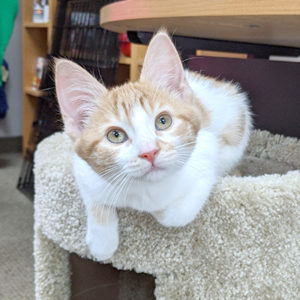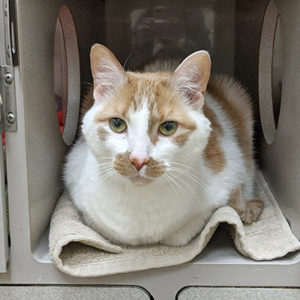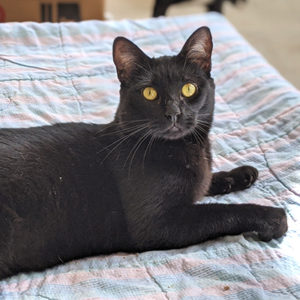One of the cats below has FIV (feline immunodeficiency virus). One has FeLV (feline leukemia virus). And one has neither. Can you tell which is which?



If you're having a hard time, don't worry. FIV and FeLV are diagnosed by testing a cat's blood. It doesn't really affect a cat's appearance. Nor does it affect a cat's ability to be a wonderful family pet. Now you're probably wondering what it does affect. Here are the basics of FIV and FeLV.
FIV (feline immunodeficiency virus)
- Is a virus that weakens a cat’s immune system
- Only contagious to other cats
- Most FIV+ cats live a normal lifespan (~15 years).
- Mainly spread through deep bite wounds (not through grooming, sharing bowls or litter boxes, or casual contact)
- Can be housed with FIV- cats as long as they get along
FeLV (feline leukemia virus)
- Is a virus that affects a cat's immune system
- Only contagious to other cats
- Many FeLV+ cats live shorter lives, but every cat is different and some do live longer.
- Spread through bodily fluids (including saliva, mother’s milk, urine, and feces). The virus doesn’t live long outside the cat’s body, but is spread through prolonged close contact (such as grooming or sharing bowls or litter boxes)
- Recommended to house only with other FeLV+ cats
Why are we telling you this?
Cats with FIV can be overlooked at some rescues, and many shelters will not put FeLV+ cats up for adoption. However, these cats are so fabulous it would be a shame if they didn’t have the chance to make someone’s life a little better. Each of the cats you see with SPCA Wake proved so extraordinary, so loving, and so wanting to be part of a family, that we knew we needed to give them that chance.
As you scroll through the adoptable cats on our website, you may find yourself drawn to one that has FIV or FeLV. We hope that, having read this, you are able to make an informed decision about whether this cat could be the right companion for you.
